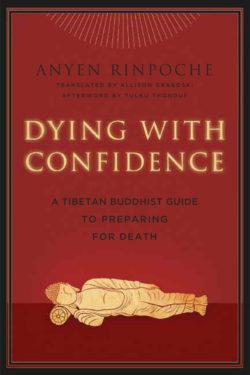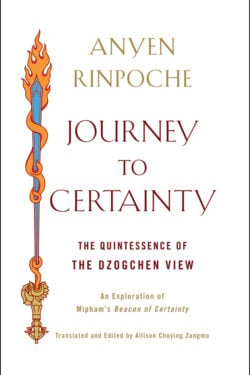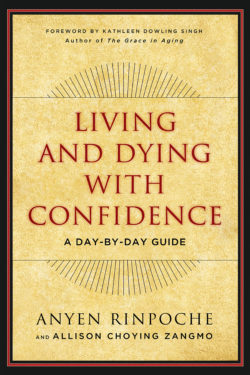Allison Choying Zangmo

Allison Choying Zangmo is a student of Anyen Rinpoche and his root master, Tsara Dharmakirti Rinpoche. She has been studying the Tibetan language and Buddhism under Anyen Rinpoche’s personal guidance for the past sixteen years, and acts as his personal translator. She lives in Denver, Colorado.
Books, Courses & Podcasts
Dying with Confidence
Anyen Rinpoche’s wise and reassuring voice guides readers through the Tibetan Buddhist teachings on death and dying, while providing practical tools for end-of-life and estate planning. Dying with Confidence reads like a remarkable how-to guide, laying out in clear and straightforward language the preparations we must make and the best practices to use while dying to further our goal of enlightenment.
Journey to Certainty
Approachable yet sophisticated, this book takes the reader on a gently guided tour of one of the most important texts Tibetan Buddhism has to offer. “Certainty” in this context refers to the unshakeable trust that develops as meditators discover for themselves the true root of reality. In this authoritative presentation, master teacher Anyen Rinpoche opens wide the storehouse of this richly philosophical text in a way that lets readers of all backgrounds easily benefit.
Learn more about Mipham Gyatso at the Treasury of Lives.
Living and Dying with Confidence
Anyen Rinpoche, Tibetan Buddhist master and teacher, and his longtime student and translator Allison Choying Zangmo present ancient and rich teachings on death in a contemporary, accessible manner.
Learn how to:
- release your attachments,
- embrace impermanence,
- cultivate virtue,
- and see the world as it really is—one day at a time.
Their practical, disciplined timeline encourages step-by-step development of qualities such as lovingkindness, compassion, generosity, and patience. Each day offers a short teaching followed by a specific, concrete exercise to help you reflect on and fully integrate the message.
Through vivid and evocative contemplative scenarios and action items, Living and Dying with Confidence brings practice off the cushion and into ordinary life.



